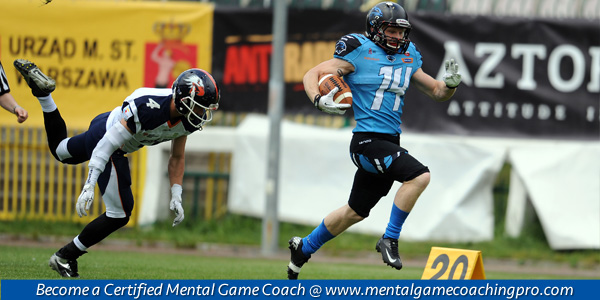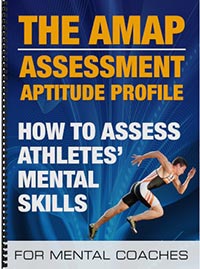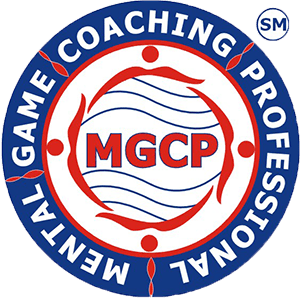
Mental Game Coaching Tips
Okay, there are no ‘tricks’ in helping athletes with the mental game, but this one strategy is pure gold.
Athletes often will present a specific a mental game problem, but it might not be the real challenge that’s blocks them from success…
My athletes sometimes guess at what’s getting in the way of success because that’s what they hear from others who are untrained in the mental game.
Others might say:
- “You just have to focus more.”
- “You need to practice harder to gain more confidence.”
- “You just have to visualize your performance.”
But what an athlete presents to you is not always the real mental game challenge!
Using my AMAP mental game assessment, I can narrow down most mental game challenges before we meet for the first session.
But only when I talk to the athlete during the first session will a clearer picture emerge.
For example, a tennis student of mine said he was losing focus during matches and this was causing him to miss routine or easy shots.
When we talked further, I discovered that the real issue was not really a lack of focus or concentration. His real issue was fear of failure and fear of making mistakes.
Fear of failure is common in my work with athletes who are highly competitive and want to win badly…
It starts with an intense need to win
This causes athlete to not want to lose. This leads to a fear of making mistakes. And this leads to playing tentatively—missing easy shots.
Did this athlete have the wrong focus? Yes, did missing shots start with his fear of missing and fear of failure. Absolutely!
Helping your athletes improve their mental game goes way beyond basic goal setting and visualization. You must understand the beliefs and labels that keep athletes stuck!
This is one of many “tricks of the trade” I teach you in the MGCP certification course!
Related Mental Coaching Articles
- 4 Tips to Help Athletes Stay Committed to Mental Training
- 8 Tips For Mental Coaches Who Work With Young Athletes
- My System for Doing Mental Coaching with Athletes
Mental Coach Assessment System

If you help athletes improve their mental game and want to be more effective with helping them build mental toughness, but don’t have a proven system for identifying and assessing your athletes’ mental game, I can help you…
I view this assessment as a way to “interview” athletes before they come in for coaching–and to improve organization and speed up the coaching process. Today, I call it the Athlete’s Mental Aptitude Profile or AMAP for short. Now you too can learn how to use the AMAP Assessment system with your athletes…
The AMAP System teaches you how to easily identify your athletes’ mental game challenges, what mental game issues to look for when reading the AMAP, and how to do a summary of the AMAP. In addition, you’ll also get follow up questions to ask and how learn about how to drill down on relevant topics.

